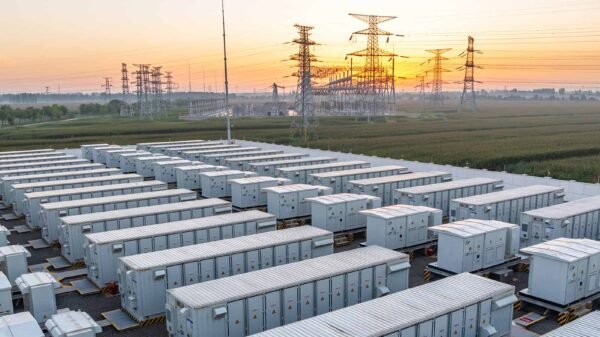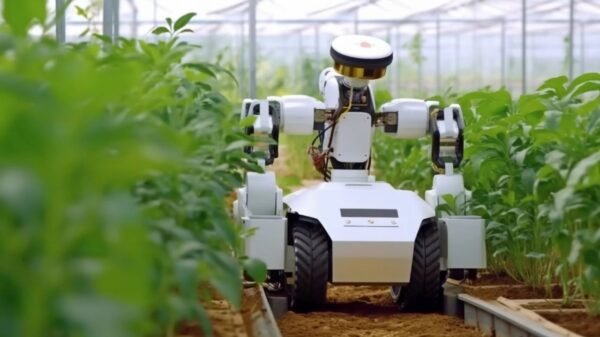Introduction to Autonomous Trucking in Dubai
Dubai has embarked on an ambitious journey to develop the world’s largest autonomous trucking network, an initiative that stands as a pioneering effort in the realm of transportation technology. Autonomous trucking, which refers to freight vehicles that are capable of navigating and operating without human intervention, leverages advanced algorithms, sensor suites, and machine learning to enhance logistical efficiency and safety.
One of the foremost benefits of autonomous trucking technology is its potential to significantly enhance road safety. Human error is a leading cause of road accidents; by minimizing the need for human drivers, autonomous trucks can reduce the incidence of traffic collisions. Utilizing state-of-the-art sensors and real-time data processing, these trucks can detect obstacles, respond to traffic conditions, and adhere to optimized driving patterns with a level of precision beyond human capability.
From an economic perspective, the autonomous trucking network in Dubai promises substantial cost savings. By reducing the reliance on human drivers and streamlining the logistics process, operational costs are lowered, leading to increased profitability for businesses. Additionally, autonomous trucks can operate continuously without the limitations of driver fatigue, thus accelerating delivery times and increasing efficiency within the supply chain.
The environmental impact of autonomous trucking is another crucial aspect driving this technological advancement. With optimized routing and driving efficiency, autonomous trucks can contribute to a reduction in fuel consumption and greenhouse gas emissions. Intelligent systems within these vehicles ensure that every journey is as energy-efficient as possible, aligning with global efforts to combat climate change and promote sustainable development.
Dubai’s initiative not only exemplifies a forward-thinking approach to technological integration but also positions the region as a leader in autonomous transportation. The successful deployment of such a network would serve as a model for other global cities, showcasing the robust potentials of autonomous trucking technology in revolutionizing the logistics industry.
The Genesis of Autonomous Trucking: Einride’s Milestone
In the realm of autonomous trucking, the pioneering strides made by the Swedish startup Einride mark a significant milestone. In 2019, Einride achieved a groundbreaking feat by becoming the first company to operate a driverless electric truck on a public road. This monumental achievement not only demonstrated the technological viability of autonomous vehicles but also underscored the potential for innovative advancements in the logistics and transportation industries.
Einride’s successful deployment of its autonomous electric truck, known as the T-pod, signifies a transformative moment in the history of transportation. The T-pod’s operation on public roads was a testament to the rigorous research, development, and testing that Einride invested in its autonomous trucking technologies. With cutting-edge capabilities, including advanced sensors and machine learning algorithms, the T-pod navigates complex traffic scenarios, ensuring safety and efficiency.
The implications of Einride’s success extend far beyond technical achievements. By proving that autonomous electric trucks can function seamlessly within existing infrastructure, Einride has paved the way for broader acceptance and integration of autonomous trucking solutions. This milestone has catalyzed interest and investment in the sector, encouraging other companies and governments to explore similar technologies.
Moreover, the impact of Einride’s innovation is profound in terms of environmental sustainability. The transition to electric, driverless trucks presents a significant opportunity to reduce carbon emissions and lower operational costs for logistics companies. As more organizations recognize the benefits of autonomous trucks, it is likely that we will see an accelerated shift towards greener, more efficient transportation networks globally.
Ultimately, Einride’s groundbreaking work in the development and deployment of autonomous electric trucks has established a blueprint for the future of transportation. This milestone represents not only a technological triumph but also a catalyst for the widespread adoption of autonomous and sustainable trucking solutions, setting the stage for a new era in global logistics and transportation networks.
Market Growth and Projections for Autonomous Trucks
The market for autonomous trucks has seen significant developments over the past few years, reaching a valuation of over $35 billion recently. This remarkable figure underscores the rapid advancements in autonomous technology and the growing acceptance of automated transportation solutions in the logistics and commercial sectors. As industries increasingly look for ways to enhance efficiency and reduce operational costs, the demand for autonomous trucks is poised to surge.
According to projections from Fortune Business Insights, the market for autonomous trucks is expected to experience unparalleled growth, with its value anticipated to double by 2032. This potential rise can be attributed to several factors including advancements in artificial intelligence, improvements in sensor technologies, and significant investments from both public and private sectors. The increasing emphasis on sustainable and eco-friendly transportation solutions is also driving the shift toward autonomous vehicles, as these trucks promise to reduce fuel consumption and emissions.
Moreover, the integration of 5G and other advanced communication networks is set to enhance the capabilities of autonomous trucks, enabling real-time data processing and more reliable vehicle-to-vehicle and vehicle-to-infrastructure communication. Such innovations are integral to the operational efficiency and safety of autonomous trucking systems, making them more viable for widespread adoption.
Additionally, various pilot projects and trials across the globe, including the establishment of the world’s largest autonomous trucking network in Dubai, are providing valuable insights and paving the way for broader implementation. The favorable regulatory environment in such regions further supports the growth trajectory of the autonomous trucks market.
As we look towards the future, it is evident that the autonomous trucks market is set on a path of robust growth. With continuous technological advancements, increasing investments, and the global push towards smart and sustainable infrastructure, the market’s valuation is poised for substantial escalation in the coming decade. These developments not only promise economic benefits but also signify a transformative shift in the logistics and transportation landscape.
Dubai’s Ambitious Autonomous Trucking Network
Dubai, a city renowned for its futuristic vision and rapid technological advancements, is embarking on an ambitious initiative to develop the world’s largest autonomous trucking network. The primary goal of this groundbreaking project is to enhance the efficiency, safety, and sustainability of the transportation sector. By integrating state-of-the-art autonomous technologies, Dubai aims to revolutionize the logistics landscape, positioning itself as a global leader in smart mobility solutions.
At the core of this initiative lies the objective of significantly reducing traffic congestion and vehicular emissions. Autonomous trucks, equipped with advanced sensors and artificial intelligence, are expected to optimize route planning and fuel consumption. This optimization not only contributes to environmental sustainability but also promises cost savings for logistics companies. Moreover, the precision and reliability of autonomous systems are anticipated to minimize road accidents and improve overall road safety.
In addition to the environmental and safety benefits, Dubai’s autonomous trucking network is poised to streamline supply chain operations. Automated logistics can ensure timely deliveries, reduce human error, and enhance the predictability of goods movement. This transformation is particularly crucial for Dubai, a major global trade hub, as it strives to maintain its competitive edge in the international marketplace.
The expected impact on the local economy is substantial. By fostering innovation and attracting high-tech investments, the autonomous trucking network is likely to generate numerous job opportunities in sectors such as robotics, artificial intelligence, and software development. Furthermore, it is anticipated to boost the economic output by cutting down transportation costs and improving the efficiency of logistics operations.
Dubai’s endeavor to build the largest autonomous trucking network reflects its broader strategy of embracing digital transformation and smart city principles. As the project progresses, it is set to establish new benchmarks in the transportation industry, demonstrating the city’s commitment to shaping a sustainable and technologically advanced future.
Collaboration with UAE’s Ministry of Energy and Infrastructure
The partnership inked last year between Dubai and the UAE’s Ministry of Energy and Infrastructure marks a pivotal juncture in the evolution of autonomous trucking. This collaboration aims to construct and deploy the ‘Freight Mobility Grid,’ aptly named Falcon Rise. The initiative is designed to revolutionize logistics and freight mobility by introducing an advanced network that seamlessly integrates autonomous trucking technologies.
Falcon Rise aspires to establish an efficient, secure, and sustainable framework for freight transportation, leveraging cutting-edge autonomous systems. By focusing on optimizing routing, reducing transit times, and enhancing safety, Falcon Rise plays a crucial role in not only streamlining logistics but also reducing the carbon footprint associated with traditional trucking operations. Furthermore, the grid is expected to bolster economic productivity by ensuring goods move faster and more reliably across the region.
Integral to the development of autonomous trucking in Dubai, Falcon Rise aims to create an inclusive ecosystem where traditional and autonomous trucks coalesce. This symbiotic relationship paves the way for gradual integration, ensuring that the transition to autonomous trucking is smooth and efficient. By implementing intelligent infrastructure equipped with real-time data analytics, the grid supports enhanced decision-making processes, promoting proactive rather than reactive responses to potential logistical challenges.
The collaboration also underscores a commitment to innovation and technological advancement in the UAE. As Dubai positions itself at the forefront of pioneering transportation solutions, Falcon Rise exemplifies a forward-thinking approach to addressing contemporary logistical demands. Moreover, this initiative aligns with broader national objectives to champion sustainability, operational efficiency, and a future-ready economy.
In summary, the collaboration between Dubai and the UAE’s Ministry of Energy and Infrastructure through Falcon Rise is set to transform the landscape of freight transportation. By integrating autonomous technology within a robust logistics framework, Dubai takes a significant step towards realizing its vision of a technologically advanced and economically vibrant future.
The Route: Connecting Abu Dhabi, Dubai, and Sharjah
The development of the world’s largest autonomous trucking network in Dubai involves an intricate plan to connect three crucial cities: Abu Dhabi, Dubai, and Sharjah. This 240-mile stretch will form the backbone of the Freight Mobility Grid, a futuristic infrastructure aiming to revolutionize logistics and transportation in the region.
Infrastructure advancements will be pivotal to accommodating autonomous trucks on this corridor. The route requires significant upgrades, including enhancements to road quality, installation of advanced traffic management systems, and the deployment of intelligent transport solutions. These enhancements will ensure seamless coordination of autonomous trucks, minimize disruptions to conventional traffic, and maintain high safety standards.
One of the primary infrastructure developments is the implementation of smart road systems. These systems will integrate cutting-edge technologies such as IoT sensors and AI-driven traffic analysis to manage the flow of autonomous vehicles efficiently. Moreover, dedicated lanes for autonomous trucks will be constructed to segregate them from traditional vehicles, thereby reducing potential hazards and fostering a more controlled environment.
Key milestones on this route include the establishment of high-capacity charging stations essential for the electric-powered autonomous trucks. These stations, strategically located along the 240-mile stretch, will ensure that vehicles can recharge promptly, thus maintaining uninterrupted freight transportation. Additionally, logistics hubs and maintenance centers will be developed to support the operational needs of the autonomous trucking fleet.
Furthermore, collaborative efforts between governmental bodies, technology developers, and transport authorities will be critical as the project progresses. Regular assessments and updates to regulations will be necessary to adapt to the evolving technological landscape and ensure compliance with safety standards.
As the route connecting Abu Dhabi, Dubai, and Sharjah becomes operational, it is expected to set new benchmarks in efficiency, sustainability, and economic growth for the region, reaffirming Dubai’s position as a global leader in autonomous transport development.
Technological and Logistical Challenges
The development of the world’s largest autonomous trucking network in Dubai presents a multitude of technological and logistical challenges. At the forefront is the integration of advanced technologies to synchronize autonomous trucks with existing transportation infrastructure. Autonomous trucking relies heavily on cutting-edge technologies such as Artificial Intelligence (AI), Machine Learning (ML), and Internet of Things (IoT), which collectively enhance the capabilities of these vehicles to navigate complex road networks, recognize obstacles, and respond to dynamic traffic conditions. Ensuring that these technologies operate seamlessly is a primary challenge that developers and engineers face.
Another significant challenge is the legal and regulatory landscape. Autonomous trucking is still a relatively new concept, and existing transportation laws and regulations are not fully equipped to handle the intricacies of self-driving vehicles. Policymakers must address concerns regarding safety standards, liability in the event of accidents, and the ethical implications of autonomous decision-making algorithms. Establishing a comprehensive regulatory framework that promotes innovation while ensuring public safety is paramount to the successful deployment of this network.
Infrastructure development also presents logistical challenges. Autonomous trucks necessitate a highly specialized and technologically advanced infrastructure that includes sophisticated GPS systems, smart traffic signals, and communication networks that enable real-time data exchange between vehicles and control centers. The existing infrastructure may require significant upgrades, and entirely new systems may need to be developed to accommodate autonomous operations. This includes dedicated lanes for autonomous trucks, charging stations for electric-powered vehicles, and hubs for data collection and analysis.
Moreover, logistical challenges include coordinating the movement of a vast fleet of autonomous trucks across extensive geographical regions. This requires meticulous planning and automated systems capable of optimizing routes, managing traffic flow, and addressing potential disruptions. Ensuring that the network operates efficiently and reliably at scale involves not only technology but also strategic partnerships with local authorities, tech companies, and logistics providers.
Future Prospects and Global Implications
Dubai’s ambitious initiative to develop the world’s largest autonomous trucking network presents an intriguing vision for the future of logistics and transportation. The successful implementation of this project could act as a catalyst for numerous transformative changes in both regional and global logistics frameworks. The most immediate result would be the enhancement of operational efficiency. Autonomous trucks have the capability to operate 24/7, reducing transit times and increasing reliability. This, in turn, would strengthen supply chain robustness, minimizing the economic impacts of delays and bottlenecks.
Another critical prospect lies in global environmental benefits. Autonomous trucks designed with electric or hybrid powertrains are expected to significantly reduce greenhouse gas emissions compared to traditional diesel trucks. If adopted on a large scale, such technology could contribute to building a greener economy and mitigating climate change impacts. Furthermore, the network could serve as a proving ground for next-generation autonomous vehicle (AV) technology, potentially accelerating technological advancements and encouraging broader adoption of autonomous logistics solutions worldwide.
Inspiration derived from Dubai’s initiative could spark similar projects across various regions. Countries grappling with high labor costs and logistic inefficiencies may find autonomous trucking networks an attractive innovation, fostering new business models and investment in AV technology. Governments and private enterprises alike could collaborate more robustly on achieving regulatory frameworks and safety standards crucial for the reliable deployment of autonomous fleets, aligning international efforts towards cohesive transportation advancements.
Moreover, the global economic ramifications are substantial. Streamlined autonomous operations would lessen dependency on human drivers, addressing labor shortages in the trucking industry. It would also lower operating costs, passing the benefits along the supply chain and potentially reducing costs for end consumers. The technological prowess showcased in Dubai’s autonomous trucking endeavor could serve as a benchmark, paving the way for more resilient, efficient, and sustainable global transportation ecosystems.



































